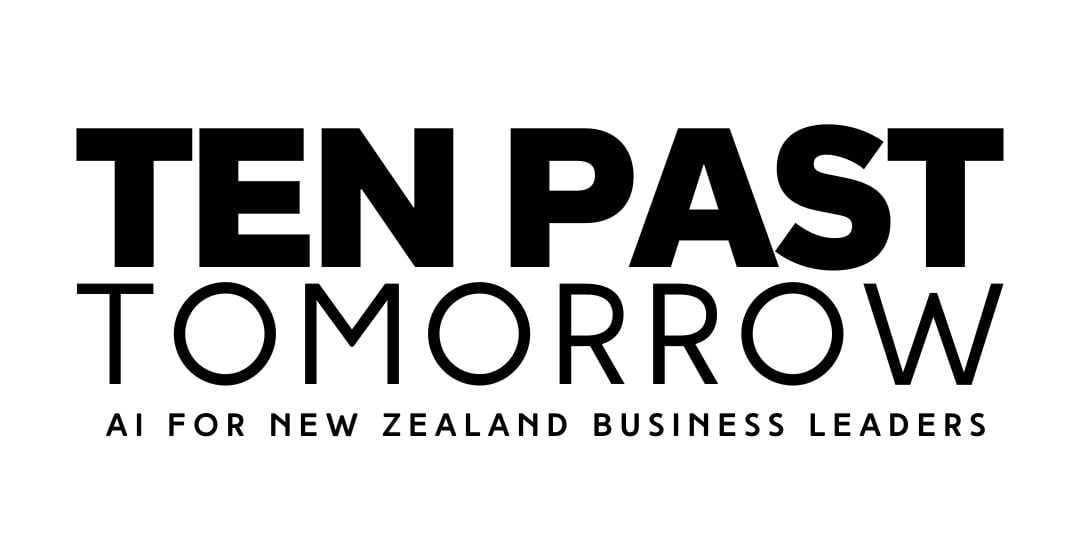My review of the 2023 AI Readiness Report
The time is ten past tomorrow; time to talk some numbers. Some powerful numbers…
-
72% of companies will significantly increase their investment in AI each year, for the next three years.
-
89% of companies have found AI enhances their ability to develop new products or services.
-
76% find it boosts collaboration.
These are headline numbers from the very impressive “AI Readiness Report 2023” recently released by Scale AI.
I was very pleased to find this report recently, as I’ve been curious about what the adoption rates for generative AI tools are looking like out there in the “real world”.
Living in the bubble of AI as I do, I’m bombarded with seemingly groundbreaking announcement after announcement, week after week. It’s easy for me to lose perspective on what impacts these groundbreaking developments are actually having on real businesses.
-
How quickly are these new generative AI applications being picked up and run with by businesses?
-
What are the main use cases they’re being deployed on?
-
Which industries are leading the charge in generative AI adoption?
These are some of the questions I’ve been pushing around my plate lately.
That’s why I was so pleased to find Scale’s report. For us in New Zealand, while the data and findings in the report are US-centric, I think they’re still fascinating and illuminating as indicators of how, where, why, and who is using generative AI as early adopters.
Uncovering what’s working, and what’s not, in generative AI
Scale say their methods and objectives behind this report were;
“To accelerate the development of AI applications. That’s why we are excited to introduce the 2nd edition of our AI Readiness Report, a survey of more than 1,600 executives and ML practitioners to uncover what’s working, what’s not, and the best practices for organizations to deploy AI for real business impact.”
As leaders of New Zealand industry, you probably already understand the central role that AI is poised to play in shaping the future trajectory of your businesses.
No doubt, you’re feeling its potential for powerful impact, and that has likely brought about an urgency (either personally or from your stakeholders) to integrate it into your companies' DNA.
In an exploration of the stats-laden report, I personally gleaned some invaluable lessons and insights from it….
According to the survey’s data, an impressive 59% of businesses perceive AI as crucial or extremely crucial within the next 12 months, and this figure rises to 69% over the coming three years. (I actually thought this figure would be higher… a demonstration of the AI bubble I live in perhaps?)

The constantly expanding potential and accessibility of generative AI are set to further expedite AI integration into businesses.
Recognising the essential nature of AI for future prosperity, corporations are ramping up investments in AI technology in the next few years.
72% of companies plan to increase their investment in AI each year for the next three years
According to Scale’s report, businesses are transitioning from a focus on “traditional” AI applications towards investing more in Language Model Learning (LLMs) and generative AI.
The statistics are telling: out of the corporations that are making substantial investments in AI, 52% are concentrating their resources on LLMs (ie. generative AI applications), 36% on generative visual models, and 30% on computer vision applications.
The recent surge in popularity of LLMs and the generative AI tools that build upon them has spurred a rapid shift in AI strategies to leverage the incredible potential of Generative AI.
Of companies making significant investments in AI:
-
52% are heavily investing in LLMs
-
36% are heavily investing in generative visual models
-
30% are investing in computer vision models
So, what does the future look like for businesses that have already embraced AI?
The “AI Readiness Report 2023” shows that businesses integrating AI are reaping the rewards of enhanced customer experiences, the capacity to create new products or services, fine-tune existing ones, and foster improved cross-functional cooperation.
Consistently, businesses integrating generative AI are registering positive outcomes in almost every area.
However, like any technological project, the success of AI initiatives hinges on effective implementation, and alignment with quantifiable business objectives.

What resources do businesses believe they possess to successfully execute their AI strategies? Where are they falling short?
Businesses that perceive generative AI as critical to their operations are confident they have the necessary executive backing, strategy, vision, and budget to triumph in executing their AI plans.
Yet, it seems that these businesses typically struggle with obtaining the required expertise, software, and tools to taste success. Even though leaders recognise the necessity of AI adoption, implementation is intricate, nuanced and relies heavily on specialist knowledge.
The fast-paced nature of the field makes it challenging to stay abreast of the latest developments. Most organisations simply don't have access to highly skilled professionals with expertise in generative AI.

This is why in my consultancy services I advocate that any New Zealand business’s path towards AI transformation must begin with the vital first step of educating their employees about AI.
In a landscape where generative AI specialists are a rarity, the upskilling of your team becomes a vital competitive edge. Investing in AI education is like creating an internal talent pool that not only harnesses AI's potential but also fosters a culture of ongoing learning and adaptability. Envision the substantial impact when your employees are able to apply AI solutions to streamline processes, spur creative thought, or enhance customer service. This proactive step to 'AI literacy' goes beyond mere future-proofing; it's an active investment in shaping your business's future.
Education further alleviates the apprehension and uncertainty often associated with AI. An AI-educated workforce is likely to be more receptive to change, understanding that AI is a tool for augmenting their capabilities and boosting productivity, rather than a threat to their roles. Essentially, AI literacy within your team fosters a better understanding of AI's role as a business accelerator rather than a job eliminator.
Where to from here for generative AI in New Zealand?
For me, the AI Readiness Report 2023 provided fascinating insight into the profound impact generative AI is making, and its pivotal role in the not-so-distant future.
It's more than clear - the adoption of generative AI tools isn't just a fleeting trend. Rather, it's forecasted by industry leaders globally to become a linchpin in the transformation and evolution of business as we know it.
Living in our rapidly evolving technological age, we are all in a position to witness firsthand the tangible and transformative effects of AI on businesses.
And in this landscape, where generative AI specialists are still few and far between, upskilling our teams emerges as a vital competitive edge. It’s about more than just staying current - it's about positioning ourselves at the forefront of innovation and harnessing the power of generative AI to drive our businesses forward.
As leaders of New Zealand's industry, we stand on the precipice of a new age of business potential.
By embracing AI literacy, we're not just investing in technology - we're investing in our people, our businesses, and the future prosperity of our industries.
It's our time to seize this opportunity, to create a wave of change that starts within our organisations and shapes the future of our business landscape. The future is indeed upon us - let's build it, shape it, and lead it, together.







